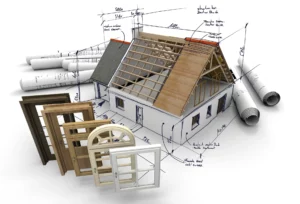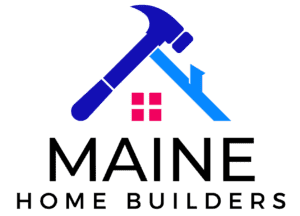How to Plan for Future Expansions in Your Custom Built Maine Home

Constructing a custom home is most of the times seen as a journey that is full of funs and excitements that allows you to mark every corner according to your preferences and way of life. Nevertheless, the vital aspect that is usually left behind during the design stages is the future expansion plan. Whether you are thinking about expanding your family, your life is taking a new direction or you just want your money to grow even more than before, it is good to look ahead and make decisions prudently about this issue. It is on this space that we shall try to make some highlights about some of the pivotal considerations that one should take into account so as to forestall any pitfalls or myopic decisions.
- Prioritize Flexible Floor Plans
While creating your Custom Built Maine Home, mull over on Floor Plans which are flexible that can be altered in future. Go for vacant spaces which are open that can also be re-arranged if need be. For example, a large sitting room may subdivide to give way for extra bedroom or office. If one uses fewer walls supporting the weight of upper sections within rooms they obtain more flexibility hence ease for using time and cash in subsequent restructuring processes.
- Plan for Additional Plumbing and Electrical Needs
For future expansions it is necessary to anticipate building proper infrastructure. Prepare your plumbing and electrical systems, expecting growth. Set up spare conduit pipes with places for future extensions to connect easily. This becomes especially important if one wants to have more bathrooms, kitchens, toilet facilities thereafter. It’s also beneficial to make sure that there is enough space on the panel board so as not get involved in much trouble or spending extra money behind repairing damaged appliances caused by overloading circuits.
- Allocate Space for Future Rooms
When designing a custom built Maine home that will enable expansions in the future, it is crucial to plan for additional rooms. Project into possible growth in your family size or changes in needs you will have. For possible conversion into living spaces, consider setting aside some areas like attic or basement. On the other hand, having undeveloped space on your land allows you to build later without interfering too much with what already exists.

- Consider Access and Circulation
It is essential to have an easy access to possible areas for expansion of a business entity. When creating your home, think about where the new extensions will be attached. It is important to ensure that there is a logical and efficient transition of one place from the existing to new ones in your plan. If, for instance, you intend on constructing another floor some years later; consequently, come up with an approach that pictures how this would be like when the time comes so that you do not find yourself in a situation where you cannot accommodate it at all due to poor planning today such as not having any extra space left on any side for example stairs or even elevators in case there will be need for these things in future which may arise without warning. This will simplify things if at all you want more space.
- Think About Exterior and Landscaping Impact
When you expand a custom built homeyou must consider its surrounding environment and garden. You should also make sure that the extension will not look out of place or disrupt the whole backyard area, as well as how they fit variously together inside your compound and how they generally look on the outside. Make sure you have enough land for this expansion without disrupting either garden layout/septic tank position or other important external activities if any.
- Consult with Professionals Early On
Interactive is significantly important when working with old constructors and developers who comprehend the details of establishing a Custom Built Maine Home that withstands the test of time. With the future expansions in mind, ideas on the best way to design your home and the assurance that the local building codes and zoning laws will be complied with can be provided by them. Their craft will help you shun away from common mistakes and makes it easier for them to cope with future any needs they may have about the house.
- Budget for Future Expansions
Ultimately, financial planning should consider potential future growth because it may not be possible to construct more rooms right away but budgeting for future projects can help one to be ready money-wise at that time. Adding plans for future expansion into the initial mortgage conversations can also clarify about the long-term financial obligations.
Conclusion
Developing that new wing for your Custom Built Maine Home you have plans of is a wise move because it will guarantee that your house is not left behind as your family grows up. You are able to keep a house that aligns with your current needs as well as adjust to future developments in a smooth manner by taking into consideration the issues of flexibility, infrastructure and space allocation just mentioned.
If you are prepared to begin building or adding on to your own custom Maine House, the go-to people that you can partner with are well skilled professionals from Maine Home Builders. The experts will help to see what you visualize get into place as they design and build houses that are meant for you; thus making sure it fits all your requirements today and in the future.
